new posts in all blogs
Viewing: Blog Posts Tagged with: books reviewed in 2013, Most Recent at Top [Help]
Results 1 - 25 of 102
How to use this Page
You are viewing the most recent posts tagged with the words: books reviewed in 2013 in the JacketFlap blog reader. What is a tag? Think of a tag as a keyword or category label. Tags can both help you find posts on JacketFlap.com as well as provide an easy way for you to "remember" and classify posts for later recall. Try adding a tag yourself by clicking "Add a tag" below a post's header. Scroll down through the list of Recent Posts in the left column and click on a post title that sounds interesting. You can view all posts from a specific blog by clicking the Blog name in the right column, or you can click a 'More Posts from this Blog' link in any individual post.
The Life of Cesare Borgia: A History and Some Criticisms. Rafael Sabatini. 1912. 326 pages. [Source: Bought]
Rafael Sabatini would NOT have approved of Horrible Histories'
Borgia Family. The truth is, however, that I would never have sought out Sabatini's biography of Cesare Borgia if I'd not fallen in love with the video. It was Mat's "I am the mostest, powerfulest, evilest of all" that made me curious and seeking. I wasn't that impressed by my first attempt to learn more. The fictional Borgia Bride
was awful. Fortunately, I discovered Sabatini's biography. It was LOVE. It wasn't love because it fit into any preconceived notions about how I wanted the Borgia family to be. It was love because it respected human nature and historical fact. It embraced common sense and used dry wit, in part, to argue and persuade.
I journaled my reading in four parts. The
first post tackled the preface and introduced Sabatini's goal in writing. It was WONDERFUL. The
second post examined Cesare's father, Alexander VI (Rodrigo). The
third post focused almost exclusively on Cesare. The
fourth post focused on Sabatini as an author, his narrative style, his technique of criticizing other authors and sources.
Life is an ephemeral business, and we waste too much of it in judging where it would beseem us better to accept, that we ourselves may come to be accepted by such future ages as may pursue the study of us.
But if it be wrong to judge a past epoch collectively by the standards of our own time, how much more is it not wrong to single out individuals for judgement by those same standards, after detaching them for the purpose from the environment in which they had their being? How false must be the conception of them thus obtained! We view the individuals so selected through a microscope of modern focus. They appear monstrous and abnormal, and we straight-way assume them to be monsters and abnormalities, never considering that the fault is in the adjustment of the instrument through which we inspect them, and that until that is corrected others of that same past age, if similarly viewed, must appear similarly distorted.
Hence it follows that some study of an age must ever prelude and accompany the study of its individuals, if comprehension is to wait upon our labours.
Sabatini just came across to me as practical, witty, sometimes wise, and sometimes poetic.
Mind being the seat of the soul, and literature being the expression of the mind, literature, it follows, is the soul of an age, the surviving and immortal part of it; (6)
Anyway, here is Sabatini's thesis--his goal for writing this biography. If you can embrace this premise, then chances are you'll find this one well worth the read!!!
Before we admit facts, not only should we call for evidence and analyse it when it is forthcoming, but the very sources of such evidence should be examined, that, as far as possible, we may ascertain what degree of credit they deserve. In the study of the history of the Borgias, we repeat, there has been too much acceptance without question, too much taking for granted of matters whose incredibility frequently touches and occasionally oversteps the confines of the impossible. (12)
If the author has a mercy to crave of his critics, it is that they will not impute it to him that he has set out with the express aim of "whitewashing"�as the term goes—the family of Borgia. To whitewash is to overlay, to mask the original fabric under a superadded surface. Too much superadding has there been here already. By your leave, all shall be stripped away. The grime shall be removed and the foulness of inference, of surmise, of deliberate and cold-blooded malice, with which centuries of scribblers, idle, fantastic, sensational, or venal, have coated the substance of known facts.
But the grime shall be preserved and analysed side by side with the actual substance, that you may judge if out of zeal to remove the former any of the latter shall have been included in the scraping. (13)
If Sabatini was alive to refute current fictional portrayals of Cesare in romance novels...
Women play no part whatever in his history. Not once shall you find a woman's influence swaying him; not once shall you see him permitting dalliance to retard his advancement or jeopardize his chances. With him, as with egotists of his type, governed by cold will and cold intellect, the sentimental side of the relation of the sexes has no place. With him one woman was as another woman; as he craved women, so he took women, but with an almost contemptuous undiscrimination.
The biography is rich in detail. It doesn't just focus on Cesare. It tries to cover more than that--to look at an age, to capture a time and place. It is ALL ABOUT context for Rafael Sabatini. And I really enjoyed his technique overall.
© 2013 Becky Laney of
Becky's Book Reviews
Zoo Animals. (Pop & Play). Simon Abbott. 2013. Kingfisher. 10 pages. [Source: Review copy]Monkeys swing through the trees.What noise do they make?Chatter! Chatter!Pandas eat bamboo.Crunch!Peekaboo!Say hello to the tiger.Count the bugs.Roar!Zoo Animals is a pop-up board book. Each spread reveals a fun pop for little ones. Monkeys swing on the vine, for example, and a crocodile opens wide and snaps. The text is simple and direct. It isn't the most amazing text ever. But it works well enough, I suppose. The illustrations are bright and fun. My favorite pages: the monkeys, the tiger, and the crocodiles. (My least favorite spread is the panda.) Your little one would need to be old enough not to pull on the pop-ups. A few rips could take all the fun out of this one. But if your little one is gentle with books, then this one definitely has appeal!
Things That go (Pop & Play) Simon Abbott. 2013. Kingfisher. 10 pages. [Source: Review copy]The racecar whizzes past. What shape are the wheels? Vroom!The digger scoops up dirt. Count the builders.Chug! Chug!The boat bobs up and down.Where is the dolphin?Toot! Toot!Things That Go is another book in Kingfisher's Pop and Play board book series. The focus this time is on vehicles. Some of the movements (the pop-ups) are great. I really loved the last two, the train and the rocket. Others didn't thrill me. The text is simple. But the flow could be a bit better perhaps. Though I think questions that ask readers to interact with the illustrations are good, at least in theory. The book's main appeal may be the pop-ups. They can be fun! For little hands that can be gentle, this one may work.
© 2013 Becky Laney of
Becky's Book Reviews
All-of-a-Kind-Family. Sydney Taylor. 1951. 190 pages. [Source: Bought]
I enjoyed rereading All-of-a-Kind Family by Sydney Taylor. This historical fiction novel is set in New York City around 1912. When the novel opens, there are five sisters: Ella, Henrietta (Henny), Sarah, Charlotte, and Gertie. They are a "steps-and-stairs" family according to the oh-so-friendly librarian Miss Allen. (Yes, the librarian plays a good role in this one!) The chapters are episodic, occurring over the course of a year. The chapters detail what life was like in a Jewish household during the early years of the new century. Some chapters are about everyday things like shopping, cleaning, going to the library, eating in bed, picky-eating at the table, etc. Other chapters are about holidays or vacations: Purim, Passover, 4th of July, visiting Coney Island, etc. My least favorite chapter remains the same: the hiding of buttons to motivate the sisters into cleaning.
I liked this one. I like it because it is old-fashioned and simple and just good. I like it because it captures a special time and place in American history.
Have you read this one? What did you think?
© 2013 Becky Laney of
Becky's Book Reviews

By:
Becky Laney,
on 9/14/2013
Blog:
Becky's Book Reviews
(
Login to Add to MyJacketFlap)
JacketFlap tags:
favorite books,
science fiction,
classics,
adult fiction,
favorite authors,
Adult Science Fiction,
library book,
1953,
books reviewed in 2013,
Add a tag
Fahrenheit 451. Ray Bradbury. 1953/2003. Random House. 190 pages.
It was a pleasure to burn. I first read and reviewed Fahrenheit 451 in
May 2007. I then read the graphic novel in
October 2010. I couldn't resist reading the "real" book
at that time as well. I even sought out A Pleasure to Burn, a collection of stories that traces
Bradbury's developing themes. That collection included two crucial stories: "The Fireman" and "Long After Midnight." (Also
I watched the movie.) The summer of 2012, I read tons of Ray Bradbury, and, of course, I
had to reread Fahrenheit 451!
I definitely consider Fahrenheit 451 one of the rare must-reads. It is intense and thought-provoking. The novel, as a whole, is powerful. But it is in conversation (or dialogue) that this one truly shines. Guy Montag's conversations with Clarisse, with Faber, and to some extent even his boss and wife. It's a very reflective novel as well. In its pages, readers get a glimpse of a man at his most vulnerable: a self awakening of sorts as a man wakes up to the nightmare world in which he's been a part of all along.
Favorite quotes:
Who knows who might be the target of the well-read man? Me? I won't stomach them for a minute...Remember, Montag, we're the happiness boys. We stand against the small tide of those who want to make everyone unhappy with conflicting theory and thought. (50-1)
We've started and won two atomic wars since 1990! Is it because we're having so much fun at home we've forgotten the world? Is it because we're so rich and the rest of the world's so poor and we just don't care if they are? Is that why we're hated so much? Do you know why? I don't, that's sure! Maybe the books can get us half out of the cave. God, Millie, don't you see? An hour a day, two hours, with these books, and maybe... (62)
Good God, it isn't as simple as just picking up a book you laid down half a century ago. Remember, the firemen are rarely necessary. The public itself stopped reading of its own accord. (78)
It’s been a long time. I’m not a religious man. But it’s been a long time.’ Faber turned the pages, stopping here and there to read. ‘It’s as good as I remember. Lord, how they’ve changed it in our parlors these days. Christ is one of the family now. I often wonder if God recognizes His own son the way we’ve dressed him up, or is it dressed him down? He’s a regular peppermint stick now, all sugar-crystal and saccharine when he isn’t making veiled references to certain commercial products that every worshiper absolutely needs.’ (81)

Do you know why books such as this are so important? Because they have quality. And what does the word quality mean? To me it means texture. This book has pores. It has features. This book can go under the microscope. You'd find life under the glass, streaming past in infinite profusion. The more pores, the more truthfully recorded details of life per square inch you can get on a sheet of paper, the more 'literary' you are. That's my definition, anyway. Telling detail. Fresh detail. The good writers touch life often. The mediocre ones run a quick hand over her. The bad ones rape her and leave her for the flies. So now do you see why books are hated and feared? They show the pores in the face of life. The comfortable people want only wax moon faces, poreless, hairless, expressionless. We are living in a time when flowers are trying to live on flowers, instead of growing on good rain and black loam. (83)
Though this one is "about" books, in a way, it is
not. It is about the ideas, emotions, concepts behind the books. It is about the knowledge and wisdom
sometimes contained in books, but never exclusively found in books. It is about choices and lifestyles. The nightmarish culture found in Fahrenheit 451 is a result of people choosing to be shallow, selfish, materialistic, technology-obsessed, and pleasure-seeking. People are "happy." But their "happiness" is fake. It comes at the cost of suppressing emotion and intellect. Free thinking is not encouraged. Thoughts shouldn't have depth and substance! One shouldn't ponder, consider, or reflect! It's about lives packed with noise and busyness--a blur of distractions--all designed to keep you from realizing there is something more, something that has been lost.
© 2013 Becky Laney of
Becky's Book Reviews
The Elite. Kiera Cass. 2013. HarperCollins. 323 pages. [Source: Library]
I enjoyed reading
The Selection. I enjoyed it for its lightness, its ease. While it is a dystopian novel, it isn't dark or bleak. The world Cass has created is socially unfair perhaps, but it isn't dark and dangerous. If you're looking for an intense action-packed thriller, The Selection and The Elite will probably disappoint. In some ways, The Elite is all about relationships. America Singer's relationship with Prince Maxon, America's relationship with Aspen (the ex who is now a palace guard), America's relationship with the other ladies (Marlee, Kriss, Elise, Natalie, Celeste). I could see why America's indecisiveness might annoy other readers. Her not being able to make up her mind if she wants to remain in the game. America can't separate her feelings for Maxon (she's falling in love with him; she knows she cares for him oh-so-much) from her feelings of doubt about the crown (she spends three hundred pages doubting that she'd be a good princess).
Readers get a chance to know both America and Maxon better in this second novel; both are shown to have strengths and weaknesses. (I didn't feel we got to know Aspen). The game definitely is getting to America in this one. She hates the fact that she doesn't know what Maxon is doing on his dates with the other girls. She hates the idea that he could be kissing other girls. That he could be getting close to other girls. The more she thinks about Maxon's time with the others, the more stand-offish she becomes with him--which doesn't make her time with Maxon go pleasantly. But when these two do manage to communicate, some of the old magic is there.
I enjoyed this one. I enjoyed spending time with America and Maxon. Her parents came to visit for a weekend, and it was lovely getting a chance to know America's father! If you enjoy romance novels, this one should entertain.
© 2013 Becky Laney of
Becky's Book Reviews
Middle Ground. Katie Kacvinsky. 2012. Houghton Mifflin Harcourt. 336 pages. [Source: Review Copy]
Middle Ground is the sequel to
Awaken. Maddie, our heroine, has had her one last chance to conform. So when she brings attention to herself in L.A. by speaking out against virtual school, she ends up in a detention center; her sentence is for six months. Most of the novel focuses on the detention center, and on how corrupt the system is. Will Maddie survive the torturous rehabilitation process?! Can she hold onto who she is and what she believes in most?
I really have enjoyed this series of books. I liked Kacvinsky's focus on the dangers of technology and addiction. It isn't that technology is bad if used responsibly, but, it can be so addictive. In this future world, technology is used to keep the populace content and conformable--to keep them from thinking, questioning, and possibly rebelling.
There is a romance, but, to me this is a secondary story almost.
© 2013 Becky Laney of
Becky's Book Reviews
Every Day After. Laura Golden. 2013. Random House. 224 pages. [Source: Review Copy]
I loved, loved, loved Every Day After by Laura Golden. I love it not because the characters are oh-so-perfect. I love it because the characters are oh-so-human. Our heroine, Lizzie Hawkins, is flawed but lovable. Every Day After is her coming-of-age story, and it's a great one.
Every Day After is set in the early 1930s. Lizzie's father recently abandoned his family because he knew that they were about to lose their house. In addition, her mother has not been the same since he left. She has checked out mentally and emotionally. She has lost touch with reality.
Lizzie doesn't know why her father left; she even hopes that he will come back and save them all. But Lizzie is determined to be strong and brave and resourceful until then. She will take care of her mother. She will not let her mother be put into a mental hospital. She will not let the authorities put her into an orphanage.
Her father had a simple rule: never, ever accept charity. To ask for help is to show weakness, and weakness is to be despised. But does Lizzie have to be strong in the same way as her Dad?
Lizzie may feel she has to do it alone. But there are people in her life who do care.
Lizzie has a best friend, Ben, and a worst enemy, Erin. It drives Lizzie crazy that Ben doesn't hate Erin too. That Ben actually treats Erin with kindness and respect. She thinks that because Erin treats her awful, bullies and teases her, that Ben should hate Erin on principle. But it is not in Ben's nature to HATE anyone. He is gentle and sensitive and compassionate. He sees what Lizzie absolutely cannot: that Erin is in tremendous emotional pain. I loved the themes of this novel. How Lizzie "grew" through the novel, how she learned about life, love, friendship, and family.
What I loved the most about Every Day After was the characterization and the writing. I CARED DEEPLY about the characters. Some scenes were very intense and uncomfortable because I felt so much. I adored Ben!!!
© 2013 Becky Laney of
Becky's Book Reviews
The Year of the Baby. Andrea Cheng. Illustrated by Patrice Barton. 2013. Houghton Mifflin Harcourt. 176 pages. [Source: Review copy]
Anna and her friends are back for a second adventure. The Year of the Baby is mainly focused on two things: Anna's new adopted (all the way) from China baby sister AND the fact that their class is participating in a science fair. When Anna's baby sister fails to thrive and starts losing weight, Anna decides her science project will be her baby sister. She teams up with her two best friends and they start their ongoing project. All the adults in her life (her parents, her teacher, the pediatrician) all act as if Anna and her friends "save the day." This bothered me. It's one thing to say "good job," or "great idea" and quite another to say it is because of YOU that the baby has gained several pounds. When the experiment only focuses on one snack of each day, and that snack consists of a handful of banana slices or pieces of Chinese burgers. That one snack is just a fraction of the meals and snacks (or feedings) consumed in a day. And most of the daily calories are coming from the other meals that have nothing to do with the experiment or observation. The experiment was fun and playful and a great chance to bond, but, I'm not convinced that it "saved the day." (The bonding might have led the baby to feel happier and more secure in her new home which might help overall in her health.)
I really wanted to love The Year of the Baby. I definitely enjoyed reading
Year of the Book. However, I have hesitations about The Year of the Baby; my hesitations are about the science experiment or science fair.
© 2013 Becky Laney of
Becky's Book Reviews
Below Stairs: The Classic Kitchen Maid's Memoir That Inspired Upstairs, Downstairs and Downton Abbey. Margaret Powell. 1968/2012. St. Martin's Press. 224 pages. [Source: Library]
Below Stairs is one of two memoirs by Margaret Powell. As a young teen--fifteen, I believe--she entered service. (She left school to begin working to support her family a year or two earlier however.) Her first positions in service were as a kitchen maid. She later promoted herself to cook and sought out other positions with other families. The book tells of her experiences and shocks. One shock, for example, was when she found out she was to iron the shoe laces every morning in addition to polishing the shoes. It's a detailed look
at work. Work as a maid is anything but fun, glamorous, exciting. Dreary, repetitive, exhausting comes more to mind. This memoir does not focus on any particular wealthy family; it is not a dramatic romance like Downton Abbey.
I enjoyed reading Below Stairs. I found it to be a quick read. I liked that Powell enjoyed reading and tried her best to read what she could, when she could, even though there wasn't always a lot of free time. She worked very long hours, had very little time to herself, and was at times discouraged from seeking out books and wanting 'more'.
© 2013 Becky Laney of
Becky's Book Reviews
How To Train a Train. Jason Carter Eaton. Illustrated by John Rocco. 2013. Candlewick Press. 48 pages. [Source: Review Copy]
Sometimes a picture book deserves its own post. Such is the case with the oh-so-clever How To Train a Train. Here's how it starts:
So you want a pet train? Well, of course you do! Trains make awesome pets--they're fun, playful, and extremely useful. Lucky for you, this handy guidebook contains everything you need to know to choose, track, and train your very own pet train. Ready? Then let's head out and find some trains!
Are you hooked yet? Curious to see just how far this book goes?!
This book will help you choose the right kind of pet train. It tells you the types of trains available, where they live, what they're like, etc. Then readers learn how to go about obtaining their pet train. My absolute favorite part of this picture book involves the "best way" to catch a train...
First, get up really early in the morning and find a good hiding spot close to some trains. Now the hard part: sit quietly and wait and wait and wait some more. As the sun rises, the trains will begin to stir and start their engines. Watch them work and play...Take your time and choose one that's right for you. Got one? Time to make your move: send a puff of smoke high into the air. Perfect! You've got the train's attention! If you brought any coal with you, now would be the time to offer it... Next make the call of the wild train: Chugga-Chugga, Chugga-Chugga!
Once you own a train, readers will need to name it and learn how to care for it properly! This book is just too much fun! So silly and yet so clever! It's just a joyous book!
I loved, loved, loved the text! And the illustrations are great too!!! One of my favorite illustrations is of the little girl--in dress up (a fairy?)--painting the name "Sparkles" on her train. This isn't the story of one child and his or her own train. It is a story about children everywhere loving trains. I liked that!
Text: 5 out of 5
Illustrations: 4 out of 5
Total: 9 out of 10
© 2013 Becky Laney of
Becky's Book Reviews
Pat of Silver Bush. L.M. Montgomery. 1933. 288 pages. [Source: Bought]
Not sure if it's my mood or if Pat just isn't as interesting as Anne, Emily, the Story Girl, or Marigold. It is not that I expect every Montgomery heroine to be just like Anne. I like that Montgomery's heroines tend to be different from one another. But other than the fact that Pat eventually started liking boys, Pat doesn't really grow or change or transform. The highlights of this one: Pat meets Jingle (Hilary) a poor young boy with an unfortunate name and no mother. From the start, readers suspect that he will be the love interest if not in this one then in book two. Pat also meets a young girl named Bets. The two are good friends. I never felt a connection with Pat really, so it was hard to find a connection with Pat and her best friend. Still, I thought it sad that the only really big thing that happens in the novel (unless you count the oh-so-tense episode with the missing dog) is Bets' death. If readers find Judy interesting--her storytelling fun--then perhaps there is enough to make this one worth reading. I didn't like this one much. I read Pat of Silver Bush because it is my goal to read all of L.M. Montgomery's novels in just one year, and to read them chronologically in order of publication. I've only got four novels left: Mistress Pat (1935)Anne of Windy Poplars (1936) Jane of Lantern Hill (1937) Anne of Ingleside (1939)© 2013 Becky Laney of
Becky's Book Reviews
Rookwood. William Harrison Ainsworth. 1834. 464 pages. [Source: Bought]
Rookwood is a mess of a novel. But sometimes it is easy to love a mess, to love a book despite its flaws. If Rookwood is a mess, it is because it is a blending of genres and story lines.
There is the incredibly creepy, ever-mysterious Rookwood family. The mystery involving lies, secret marriages, hidden wills, and a LOT of murder. The heart of this plot is focused on inheritance. Who is the rightful heir of the Rookwood estate? Is it Luke Bradley the supposed "illegitimate" son of Sir Piers Rookwood and Susan Bradley? There seems to be proof the two were married and he is in fact legitimate after all. Is it Eleanor Mowbray? There seems to be a hint in that direction. Is it Ranulph Rookwood? He's certainly confident that he's the rightful claimant. And he's ready to defend it against contrary claims. The plot is creepy and bizarre because the family history is so strange and blood-filled. The book also lacks a clear HERO.
When it is creepy, it is incredibly creepy. The chapters that focus on the underground wedding are so very weird and creepy. Before Luke found out the truth about his past, about who he is, he was in love with a gypsy girl, Sybil Lovel. And Sybil's mother, Barbara, is truly
something. As soon as Luke does find out the truth, he becomes fascinated with the idea of marrying his cousin Eleanor Mowbray and 'stealing' her away from his half-brother, Ranulph. (Eleanor and Ranulph were in love already.) The "romance" of this one is truly creepy and a bit bloody.

Balancing out the gothic romance, readers meet Dick Turpin, famous highwayman. Over half the novel stars Turpin. Readers see him eating, drinking, joking, singing, laughing, fighting, riding, holding up coaches, etc. Readers see him among friends and enemies. Turpin knows Luke Bradley. He knows of the messy inheritance. He has in his possession the marriage certificate. He wants Bradley to be triumphant perhaps, but he'll bargain with either side. He and Bradley work together at times, and against each other at times. Bradley isn't above playing legitimate hero and rescuing the damsel in distress if he feels like it. Turpin overlooks the frustrations Bradley sends his way. These sections of the novel are incredibly light. All action. All adventure. A lot of drinking and singing and general merry-making. And an incredible amount of boasting!
Quotes:
"Thoughts should not always find utterance, else we might often endanger our own safety, and that of others."
It is as necessary for a man to be a gentleman before he can turn highwayman, as it is for a doctor to have his diploma, or an attorney his certificate.
You may both of you be gratified, gentlemen," said Palmer. "Talking of Dick Turpin, they say, is like speaking of the devil, he's at your elbow ere the word's well out of your mouth. He may be within hearing at this moment, for anything we know to the contrary."
By-the-by," added he, surveying Jack more narrowly, "it occurs to me that Turpin must be rather like you, Mr. Palmer?"
"Like me," said Jack, regarding Coates askance; "like me—how am I to understand you, sir, eh?" "No offence; none whatever, sir. Ah! stay, you won't object to my comparing the description. That can do no harm. Nobody would take you for a highwayman—nobody whatever—ha! ha! Singular resemblance—he—he. These things do happen sometimes: not very often, though. But here is Turpin's description in the Gazette, June 28th, A.D. 1737:—'It having been represented to the King that Richard Turpin did, on Wednesday, the 4th of May last, rob on his Majesty's highway Vavasour Mowbray, Esq., Major of the 2d troop of Horse Grenadiers'—that Major Mowbray, by-the-by, is a nephew of the late Sir Piers, and cousin of the present baronet—'and commit other notorious felonies and robberies near London, his Majesty is pleased to promise his most gracious pardon to any of his accomplices, and a reward of two hundred pounds to any person or persons who shall discover him, so as he may be apprehended and convicted.'" "Odsbodikins!" exclaimed Titus, "a noble reward! I should like to lay hands upon Turpin," added he, slapping Palmer's shoulder: "I wish he were in your place at this moment, Jack." "Thank you!" replied Palmer, shifting his chair. "'Turpin,'" continued Coates, "'was born at Thacksted, in Essex; is about thirty'—you, sir, I believe, are about thirty?" added he, addressing Palmer. "Thereabouts," said Jack, bluffly. "But what has my age to do with that of Turpin?" "Nothing—nothing at all," answered Coates; "suffer me, however, to proceed:—'Is by trade a butcher,'—you, sir, I believe, never had any dealings in that line?" "I have some notion how to dispose of a troublesome calf," returned Jack. "But Turpin, though described as a butcher, is, I understand, a lineal descendant of a great French archbishop of the same name." "Who wrote the chronicles of that royal robber Charlemagne; I know him," replied Coates—"a terrible liar!—The modern Turpin 'is about five feet nine inches high'—exactly your height, sir—exactly!" "I am five feet ten," answered Jack, standing bolt upright. "You have an inch, then, in your favor," returned the unperturbed attorney, deliberately proceeding with his examination—"'he has a brown complexion, marked with the smallpox.'" "My complexion is florid—my face without a seam," quoth Jack. "Those whiskers would conceal anything," replied Coates, with a grin. "Nobody wears whiskers nowadays, except a highwayman." "Sir!" said Jack, sternly. "You are personal." "I don't mean to be so," replied Coates; "but you must allow the description tallies with your own in a remarkable manner. Hear me out, however—'his cheek bones are broad—his face is thinner towards the bottom—his visage short—pretty upright—and broad about the shoulders.' Now I appeal to Mr. Tyrconnel if all this does not sound like a portrait of yourself." "Don't appeal to me," said Titus, hastily, "upon such a delicate point. I can't say that I approve of a gentleman being likened to a highwayman. But if ever there was a highwayman I'd wish to resemble, it's either Redmond O'Hanlon or Richard Turpin; and may the devil burn me if I know which of the two is the greater rascal!" "Well, Mr. Palmer," said Coates, "I repeat, I mean no offence. Likenesses are unaccountable. I am said to be like my Lord North; whether I am or not, the Lord knows. But if ever I meet with Turpin I shall bear you in mind—he—he! Ah! if ever I should have the good luck to stumble upon him, I've a plan for his capture which couldn't fail. Only let me get a glimpse of him, that's all. You shall see how I'll dispose of him." "Well, sir, we shall see," observed Palmer. "And for your own sake, I wish you may never be nearer to him than you are at this moment. With his friends, they say Dick Turpin can be as gentle as a lamb; with his foes, especially with a limb of the law like yourself, he's been found but an ugly customer.
Tell me, girl, in what way? Speak, that I may avenge you, if your wrong requires revenge. Are you blood of mine, and think I will not do this for you, girl? None of the blood of Barbara Lovel were ever unrevenged. When Richard Cooper stabbed my first-born, Francis, he fled to Flanders to escape my wrath. But he did not escape it. I pursued him thither. I hunted him out; drove him back to his own country, and brought him to the gallows. It took a power of gold. What matter? Revenge is dearer than gold. And as it was with Richard Cooper, so it shall be with Luke Bradley. I will catch him, though he run. I will trip him, though he leap. I will reach him, though he flee afar. I will drag him hither by the hair of his head," added she, with a livid smile, and clutching at the air with her hands, as if in the act of pulling some one towards her. "He shall wed you within the hour, if you will have it, or if your honor need that it should be so. My power is not departed from me. My people are yet at my command. I am still their queen, and woe to him that offendeth me!" "Mother! mother!" cried Sybil, affrighted at the storm she had unwittingly aroused, "he has not injured me. 'Tis I alone who am to blame, not Luke." "You speak in mysteries," said Barbara. "Sir Piers Rookwood is dead." "Dead!" echoed Barbara, letting fall her hazel rod. "Sir Piers dead!" "And Luke Bradley——" "Ha!" "Is his successor." "Who told you that?" asked Barbara, with increased astonishment.
Dick saw the effect that he produced. He was at home in a moment. Your true highwayman has ever a passion for effect. This does not desert him at the gallows; it rises superior to death itself, and has been known to influence the manner of his dangling from the gibbet!
"Proceed now with the ceremony," continued Barbara. "By darkness, or by light, the match shall be completed." The ring was then placed upon the finger of the bride; and as Luke touched it, he shuddered. It was cold as that of the corpse which he had clasped but now. The prayer was said, the blessing given, the marriage was complete. Suddenly there issued from the darkness deep dirge-like tones, and a voice solemnly chanted a strain, which all knew to be the death-song of their race, hymned by wailing women over an expiring sister. The music seemed to float in the air. THE SOUL-BELL Fast the sand of life is falling, Fast her latest sigh exhaling, Fast, fast, is she dying. With death's chills her limbs are shivering, With death's gasp the lips are quivering, Fast her soul away is flying. O'er the mountain-top it fleeteth, And the skyey wonders greeteth, Singing loud as stars it meeteth On its way. Hark! the sullen Soul-bell tolling, Hollowly in echoes rolling, Seems to say— "She will ope her eyes—oh, never! Quenched their dark light—gone for ever! She is dead."
The next time you wed, Sir Luke, let me advise you not to choose a wife in the dark. A man should have all his senses about him on these occasions. Make love when the liquor's in; marry when it's out, and, above all, with your eyes open. This beats cock-fighting—ha, ha, ha!—you must excuse me; but, upon my soul, I can't help it."
"Every man to his taste," returned Turpin; "I love to confront danger. Run away! pshaw! always meet your foe."
A man should always die game. We none of us know how soon our turn may come; but come when it will, I shall never flinch from it. As the highwayman's life is the fullest of zest, So the highwayman's death is the briefest and best; He dies not as other men die, by degrees, But at once! without flinching—and quite at his ease!
© 2013 Becky Laney of
Becky's Book Reviews
April Lady. Georgette Heyer. 1957/2005. Harlequin. 270 pages. [Source: Library]
In some ways, April Lady is a very simple novel. A husband and wife are madly in love with each other; but each thinks the other only married out of convenience. They are horrible at communicating with one another. Nell may love her husband dearly, but clearly she does not understand him. Perhaps the couple's biggest problem is that of inequality. Instead of being husband and wife, they sometimes act like parent and child. (There is quite a bit of scolding at times. I can see why, she does act incredibly foolish. But still. His scolding isn't going to solve anything!)
April Lady may be predictable from cover to cover, but that does not stop this romance from being a satisfying one. What I enjoyed most about April Lady was the characterization. It wasn't that I loved the heroine, Nell, or her husband, Cardross; it was that Nell and Cardross were surrounded by interesting characters.
So. Nell has a brother, Dysart, who is a reckless gambler. (He's a LOT of fun, however.) Giles (Cardross) has a half-sister, Letty. She's silly, foolish, stubborn, and spoiled. Letty is in love with Jeremy Allandale. She is insisting (to anyone who will listen) that they HAVE to get married right NOW. It's not good enough that her brother will consent to the match in two or three years when she is nineteen or so. Now, now,
now. Cardross also has a good friend, a cousin named Felix Hethersett.
I loved Felix, Dysart, Letty, and Jeremy more than Cardross and Nell. If this romance did not have such a great cast of "minor" characters, it would be awful.
22 / 33 books read. 67% done!
© 2013 Becky Laney of
Becky's Book Reviews
Sprig Muslin. Georgette Heyer. 1956/2011. Sourcebooks. 304 pages. [Source: Library]
Sprig Muslin is a lovely romance novel by Georgette Heyer. It is very reader-friendly; the pacing is even and it's a delight from the start. (In some of Heyer's novels the satisfaction comes in the last third of the novel; that isn't the case in Sprig Muslin). What makes Sprig Muslin satisfying isn't the romance, it is the comedy.
Sir Gareth Ludlow is on his way to propose to a very respectable woman, Lady Hester. He is quite fond of her, has respected and admired her for years. But he is not
madly in love with her. On his trip, he accidentally meets Amanda "Smith." This young woman is obvious trouble from the start. She is obviously a woman intent on running away. He doesn't know her real name; he doesn't know where she's from--city or country; he doesn't know anything about her character except that she's a big liar, has an extraordinary imagination, and is incredibly foolish. This is a woman in need of rescuing. She needs someone with commonsense and no agenda to get her back where she belongs. He doesn't exactly want the job. But someone has to do it. He can't just leave her to her own designs or something awful could happen.
Amanda is the life of this novel. She is foolish, imaginative, stubborn, and vivacious. She is always plotting, always on the move, always calculating the situation and writing a new story. She keeps the novel going at a tremendous pace. Sir Gareth can hardly keep up with her, and the others they meet along the way are just as bad.
The novel is a big misadventure; there are plenty of interesting characters as well. This novel works BECAUSE Sir Gareth and Amanda are not love interests. I loved every minute of this one. Not because it was romantic and giddy-making, but because it was just so funny.
© 2013 Becky Laney of
Becky's Book Reviews
Bath Tangle. Georgette Heyer. 1955/2011. Sourcebooks. 368 pages. [Source: Review Copy]
I may not have loved Bath Tangle
the first time I read it, but I REALLY loved it this time!!! One thing I'm learning by rereading all the Heyer romances is that timing is everything, that there is a right mood and a wrong mood for reading. This time, I was definitely in the right mood to enjoy Bath Tangle from cover to cover.
Heyer is sometimes compared to Jane Austen. Bath Tangle shares some similarities with Pride and Prejudice and Persuasion. The feisty relationship between Ivo, the Marquis of Rotherham, and Serena is in some ways like that of Elizabeth and Darcy. Ivo and Serena were at one point--perhaps five to seven years before the start of Bath Tangle?--engaged to be married. I wouldn't say there is regret on her part, at least not that she'd ever admit, however, there is enough regret on his side--which he hides under some pride. There are hints at Persuasion, but just subtly. The start of Bath Tangle even reminds me a tiny bit of Sense and Sensibility: it starts with a death (Serena's father) and is all about family adjustments. Serena and her step-mother Fanny are out of a home because of an inheritance; and there is some family tension. However, they are not poor.
Serena is close to her step-mother, Fanny, who is several years younger. The two decide to keep house together. Fanny does not want to go back to live with her parents. And Serena does not want to have to live with a fussy aunt. They can chaperon one another. The two eventually decide to go to Bath to finish out their year of mourning. Bath Tangle is about their time there and the men and women they meet. Hector is one of the gentleman they meet. He and Serena flirted years ago; he thought she was THE ONE. She is very pleased to see him again. She has very fond memories of being worshiped. The two do not announce their engagement, but they do come to an agreement. Emily is a young woman that Serena and Fanny spend some time with. Emily is the fiancee of Ivo. Fanny thinks the marriage would be a huge mistake. Serena thinks that Emily just needs time and training, that she can be made to be worthy of Ivo. Mrs. Floore is a very interesting character, as well, she is Emily's grandmother.
The "tangle" of the title is very appropriate for the relationships in Bath Tangle are very messy. Even though Ivo is not present in a great many scenes, I felt his presence was still FELT throughout much of the novel. I really thought the tension between Ivo and Serena was great. Loved all the arguing. Loved how he understood her better than Hector! The last third of the novel was practically perfect.
Bath Tangle is a romantic comedy. The love lives of most of the characters are settled by the end of the novel.
I also appreciated the historical detail in this one. There is some time spent discussing Glenarvon by
Caroline Lamb, which was quite a sensation in 1816. Also there is discussion of the wedding (or upcoming wedding) of
Princess Charlotte and
Prince Leopold.
© 2013 Becky Laney of
Becky's Book Reviews
Pygmalion. George Bernard Shaw. 1912. 96 pages.
Pygmalion is another book I read for the book to movie reading challenge. There is a lovely 1938 movie starring Leslie Howard and Wendy Hiller. If you've only seen Leslie Howard in Gone With The Wind, you should really make a point to see either Pygmalion OR The Scarlet Pimpernel (1934). Pygmalion was also the inspiration, of course, for the musical My Fair Lady starring Rex Harrison and Audrey Hepburn. Don't ask me to choose between Pygmalion and My Fair Lady. I happen to LOVE musicals, but Leslie Howard is oh-so-good in this one!!!
Pygmalion is certainly the inspiration for My Fair Lady. And I feel the musical stays, perhaps until the very end, true to the spirit of the original play. The songs fill in the gaps between the acts and scenes. The songs are quite expressive and provide insight on the individual characters. Through song, we learn more about what is going on in the house and about the months of training involved. On the other hand, in the book, there's a big gap between when Henry Higgins agrees to the experiment with Eliza Doolittle and her first outing. The first outing in the book is to Professor Higgins' mother's house. (The racing scene isn't in the original play.) Another big difference is that readers don't witness the big scene, the triumphant scene firsthand. Readers simply see the three returning home all dressed up. Readers hear the boasting and learn of the success after the fact. I really enjoyed the way My Fair Lady added to the original while keeping up the spirit.
Pygmalion is a short read, and it's also quite enjoyable!
© 2013 Becky Laney of
Becky's Book Reviews
The English Governess at the Siamese Court: The True Story Behind 'The King and I' by Anna Harriette Leonowens. 1870/1999. 320 pages.
I have been intending to read this "memoir" for a decade now; I decided to read it this year for the book to movie reading challenge. This memoir and the movie have very little in common, perhaps with two exceptions. First, the English governess (Anna) did want the King to fulfill his promise of a house outside the palace. Second, there is one conversation from the memoir that made it (to a certain degree) into the movie. It comes early in the film.
The king shook hands with us, and immediately proceeded to march up and down in quick step, putting one foot before the other with mathematical precision, as if under drill. "Forewarned, forearmed!" my friend whispered that I should prepare myself for a sharp cross-questioning as to my age, my husband, children, and other strictly personal concerns. Suddenly his Majesty, having cogitated sufficiently in his peculiar manner, with one long final stride halted in front of us, and pointing straight at me with his forefinger, asked, "How old shall you be?"
Scarcely able to repress a smile at a proceeding so absurd, and with my sex's distaste for so serious a question, I demurely replied, "One hundred and fifty years old."
Had I made myself much younger, he might have ridiculed or assailed me; but now he stood surprised and embarrassed for a few moments, then resumed his queer march; and at last, beginning to perceive the jest, coughed, laughed, coughed again, and in a high, sharp key asked, "In what year were you borned?"
Instantly I struck a mental balance, and answered, as gravely as I could, "In 1788."
At this point the expression of his Majesty's face was indescribably comical. Captain B—— slipped behind a pillar to laugh; but the king only coughed, with a significant emphasis that startled me, and addressed a few words to his prostrate courtiers, who smiled at the carpet,—all except the prime minister, who turned to look at me. But his Majesty was not to be baffled so: again he marched with vigor, and then returned to the attack with élan.
"How many years shall you be married?"
"For several years, your Majesty."
He fell into a brown study; then, laughing, rushed at me, and demanded triumphantly:—
"Ha! How many grandchildren shall you now have? Ha, ha! How many? How many? Ha, ha, ha!"
Of course we all laughed with him; but the general hilarity admitted of a variety of constructions.
For those expecting the "memoirs" to be personal (about herself, about her son, about the king, about the king's wives, about the king's children, about the royal court, etc.) you will likely be disappointed. For those expecting the "memoirs" to be entertaining, chances are you'll be disappointed as well. Travel writing does not have to be a bore. A travel writer can attempt to be objective and interesting at the same time.
I definitely preferred the musical, "The King and I" to the memoir.
Personally, I found the book to lack narrative structure or flow. While a handful of the chapters were mildly entertaining and/or interesting, most were not. One chapter didn't necessarily flow into the next. And the subjects covered were all over the place. The tone of this one was unpleasant as well. At times, the narrator comes across as too condescending, too judgmental. For example:
In common with most of the Asiatic races, they are apt to be indolent, improvident, greedy, intemperate, servile, cruel, vain, inquisitive, superstitious, and cowardly; but individual variations from the more repulsive types are happily not rare.
or
There were delightful discoveries of beauty in the artless, childish faces that greeted us every morning; and now the only wonder was that I had been so slow to penetrate the secret of their charm.
or
No friend of mine knew at that time how hard it was for me to bear up, in the utter loneliness and forlornness of my life, under the load of cares and provocations and fears that gradually accumulated upon me.
But ah! if any germ of love and truth fell from my heart into the heart of even the meanest of those wives and concubines and children of a king, if by any word of mine the least of them was won to look up, out of the depths of their miserable life, to a higher, clearer, brighter light than their Buddha casts upon their path, then indeed I did not labor in vain among them.
There were some portions of text that could prove charming or interesting:
"I have sixty-seven children," said his Majesty, when we had returned to the Audience Hall. "You shall educate them, and as many of my wives, likewise, as may wish to learn English. And I have much correspondence in which you must assist me. And, moreover, I have much difficulty for reading and translating French letters; for French are fond of using gloomily deceiving terms. You must undertake; and you shall make all their murky sentences and gloomily deceiving propositions clear to me. And, furthermore, I have by every mail foreign letters whose writing is not easily read by me. You shall copy on round hand, for my readily perusal thereof."
We found his Majesty in a less genial mood than at my first reception. He approached us coughing loudly and repeatedly, a sufficiently ominous fashion of announcing himself, which greatly discouraged my darling boy, who clung to me anxiously. He was followed by a numerous "tail" of women and children, who formally prostrated themselves around him. Shaking hands with me coldly, but remarking upon the beauty of the child's hair, half buried in the folds of my dress, he turned to the premier's sister, and conversed at some length with her, she apparently acquiescing in all that he had to say. He then approached me, and said, in a loud and domineering tone:—
"It is our pleasure that you shall reside within this palace with our family."
I replied that it would be quite impossible for me to do so; that, being as yet unable to speak the language, and the gates being shut every evening, I should feel like an unhappy prisoner in the palace.
"Where do you go every evening?" he demanded.
"Not anywhere, your Majesty. I am a stranger here."
"Then why you shall object to the gates being shut?"
"I do not clearly know," I replied, with a secret shudder at the idea of sleeping within those walls; "but I am afraid I could not do it. I beg your Majesty will remember that in your gracious letter you promised me 'a residence adjoining the royal palace,' not within it."
He turned and looked at me, his face growing almost purple with rage. "I do not know I have promised. I do not know former condition. I do not know anything but you are our servant; and it is our pleasure that you must live in this palace, and—you shall obey." Those last three words he fairly screamed.
I trembled in every limb, and for some time knew not how to reply. At length I ventured to say, "I am prepared to obey all your Majesty's commands within the obligation of my duty to your family, but beyond that I can promise no obedience."
"You shall live in palace," he roared,—"you _shall _live in palace! I will give woman slaves to wait on you. You shall commence royal school in this pavilion on Thursday next. That is the best day for such undertaking, in the estimation of our astrologers."
With that, he addressed, in a frantic manner, commands, unintelligible to me, to some of the old women about the pavilion. My boy began to cry; tears filled my own eyes; and the premier's sister, so kind but an hour before, cast fierce glances at us both. I turned and led my child toward the oval brass door. We heard voices behind us crying. "Mam! Mam!" I turned again, and saw the king beckoning and calling to me. I bowed to him profoundly, but passed on through the brass door.
But his Majesty was notably temperate in his diet, and by no means a gastronome. In his long seclusion in a Buddhist cloister he had acquired habits of severe simplicity and frugality, as a preparation for the exercise of those powers of mental concentration for which he was remarkable. At these morning repasts it was his custom to detain me in conversation relating to some topic of interest derived from his studies, or in reading or translating. He was more systematically educated, and a more capacious devourer of books and news, than perhaps any man of equal rank in our day. But much learning had made him morally mad; his extensive reading had engendered in his mind an extreme scepticism concerning all existing religious systems.
The love of children was the constant and hearty virtue of this forlorn despot. They appealed to him by their beauty and their trustfulness, they refreshed him with the bold innocence of their ways, so frolicsome, graceful, and quaint.
But it was my consolation to know that I could befriend the women and children of the palace, who, when they saw that I was not afraid to oppose the king in his more outrageous caprices of tyranny, imagined me endued with supernatural powers, and secretly came to me with their grievances, in full assurance that sooner or later I would see them redressed. And so, with no intention on my part, and almost without my own consent, I suffered myself to be set up between the oppressor and the oppressed.
© 2013 Becky Laney of
Becky's Book Reviews
The Tutor's Daughter. Julie Klassen. 2013. Bethany House. 412 pages.
It wasn't quite love at first sight--or love at first sentence, I suppose. But within a few chapters, I knew it was LOVE, LOVE, LOVE. The more I read, the more I loved. This was one of those oh-so-magical, giddy-making historical romances for me. The Tutor's Daughter is a regency romance. (I would DEFINITELY recommend it for fans of Jane Austen and Georgette Heyer.) The heroine is a young woman, Emma Smallwood. She has for the last few years greatly helped her father in his teaching or tutoring. In the past, they've taught from their own home or school. But business has been poorly lately, and when he is offered a tutoring position at the home of his would-be-pupil, and that offer extends to his daughter, he accepts. The Smallwoods will be leaving their own home to live with the Weston family. They know the two oldest Weston sons--they are former students now grown to adulthood. But they don't know their new pupils, Rowan and Julian. And nothing prepares them for the reality of living in such a strange and sometimes unwelcoming home. (It feels more like Northanger Abbey than Jane Eyre, perhaps, but there are some secrets, some clues, some mysteries.) The Weston household can be oh-so-strange and not at all what it appears.
When she was younger, Emma was perhaps drawn to the second son, Phillip. But now that she's become reacquainted with both Phillip and Henry, well, she's surprised by how much she does admire and respect Henry! This is SHOCKING to her at first because she perhaps didn't realize that he would grow out of his childishness, his obnoxiousness, his pranks. But he is all grown up now, and he's oh-so-responsible.
I absolutely loved this one so much. It was so compelling, so dramatic, so perfectly perfect!!!
© 2013 Becky Laney of
Becky's Book Reviews
Speaking from Among the Bones. Alan Bradley. 2013. Random House. 400 pages.
I've enjoyed each of the Flavia de Luce mysteries written by Alan Bradley. This young detective is quite original, though her mystery novels have, in a way, become more predictable. I mean that readers know almost exactly what to expect of the series, of the main characters, of the writing. (Not the details of the actual mysteries, the murder mysteries.) If you love the character of Flavia de Luce, it can be a good thing--comforting, satisfying--to know that nothing ever changes. Still, a little character growth wouldn't be a horrible thing in any of the main characters. (There are two significant things readers learn by the conclusion of this book. These potentially could change things up a bit.) It probably won't surprise anyone that Flavia discovers a dead body in this newest mystery. She found it in an ancient tomb they (the church) were getting ready to excavate. There were plenty of peculiar details about it, plenty of clues for a young girl detective to follow. These clues lead her into great danger, perhaps the greatest danger she's known thus far in the series.
If you have enjoyed the series in the past, this one is worth reading. Others include: The Sweetness at the Bottom of the Pie, The Weed That Strings the Hangman's Bag, A Red Herring Without Mustard, and I Am Half-Sick of Shadows.
© 2013 Becky Laney of
Becky's Book Reviews

By:
Becky Laney,
on 4/22/2013
Blog:
Becky's Book Reviews
(
Login to Add to MyJacketFlap)
JacketFlap tags:
YA Fiction,
YA Historical Fiction,
YA Fantasy,
J Historical Fiction,
J Fiction,
J Fantasy,
2012,
Penguin USA,
library book,
books reviewed in 2013,
Add a tag
Chronicles of Egg #1: Deadweather and Sunrise. Geoff Rodkey. 2012. Penguin. 288 pages.
What I enjoyed most in Geoff Rodkey's novel, Deadweather and Sunrise, (the first in the Chronicles of Egg series) was the writing or storytelling. For example, I loved how this pirate-adventure (set in an alternate--though at times familiar--world) began:
"Nobody lived on Deadweather but us and the pirates. It wasn't hard to understand why. For one thing, the weather was atrocious. Eleven months out of twelve, it was brutally hot and humid, with no wind at all, so on a bad day the air felt like a hot, soggy blanket smothering you from all sides. And the other month was September, which meant hurricanes. Then there was the volcano. It hadn't actually blown in ages, but it belched smoke and shook the earth enough to scare away anybody who might've overlooked the pirates and the weather."
There are plenty of descriptive details in this coming-of-age adventure quest.
Egbert (Egg) is often mistreated by his immediate family (his father and older brothers). Kindness and compassion being foreign concepts to him. He's only known one way of being treated, only one way of "being" or "belonging" in a family. So when life as he knows it changes dramatically, he's at a loss. His ENTIRE family went up in a hot-air balloon, never to return. They are presumed dead after several weeks of presumed searching. The man who takes Egg into his own home and introduces him to his own family has layers of secrets as Egg discovers. There is one person that Egg comes to love dearly during his stay. The daughter, Millicent. She's an interesting character, in a way. And I appreciated her perhaps a little more than the other sidekick, Guts.
If you enjoy action-adventure stories with secrets, mysteries, pirates, and an ultimate hunt for treasure, then this may be a good match.
© 2013 Becky Laney of
Becky's Book Reviews
A Little Princess. Frances Hodgson Burnett. 1905. 264 pages.
I really enjoyed reading A Little Princess. I think I loved it even more than Secret Garden. (Which is your favorite?) The novel begins with a sad goodbye: Captain Crewe is placing his daughter, Sara, in a boarding school. Their parting is perhaps necessary, but, difficult all the same. Neither know that it is forever. For Sara Crewe's status will change from daughter of a wealthy well-respected man to penniless orphan girl. Only Sara's truest friends will be with her to support her. Through it all, Sara holds on to her dignity. Is Sara as spirited as some of the other heroines we've read about? I think she has great
spirit to her.
I love A Little Princess because of the writing--the descriptions, the characterization, the storytelling. It's a great story.
Just as Pollyanna reminded me of the story of Joseph (from Genesis), A Little Princess reminds me of the story of Job (from Job).
Sara with her father:
Then he went with Sara into her little sitting room and they bade each other good-by. Sara sat on his knee and held the lapels of his coat in her small hands, and looked long and hard at his face. "Are you learning me by heart, little Sara?" he said, stroking her hair. "No," she answered. "I know you by heart. You are inside my heart." And they put their arms round each other and kissed as if they would never let each other go.
Other favorite quotes:
"Why," she said, "we are just the same—I am only a little girl like you. It's just an accident that I am not you, and you are not me!"
"I've often thought," said Sara, in her reflecting voice, "that I should like to be a princess; I wonder what it feels like. I believe I will begin pretending I am one."
"She says it has nothing to do with what you look like, or what you have. It has only to do with what you THINK of, and what you DO."
If Nature has made you for a giver, your hands are born open, and so is your heart; and though there may be times when your hands are empty, your heart is always full, and you can give things out of that—warm things, kind things, sweet things—help and comfort and laughter—and sometimes gay, kind laughter is the best help of all.
"You are always supposing things," said Lavinia, and her air was very superior. "I know I am," answered Sara, undisturbedly. "I like it. There is nothing so nice as supposing. It's almost like being a fairy. If you suppose anything hard enough it seems as if it were real." "It's all very well to suppose things if you have everything," said Lavinia. "Could you suppose and pretend if you were a beggar and lived in a garret?"
You see how true it is. There's no difference now. I'm not a princess anymore." Becky ran to her and caught her hand, and hugged it to her breast, kneeling beside her and sobbing with love and pain. "Yes, miss, you are," she cried, and her words were all broken. "Whats'ever 'appens to you—whats'ever—you'd be a princess all the same—an' nothin' couldn't make you nothin' different."
"You are nicer than I am," said Sara. "I was too proud to try and make friends. You see, now that trials have come, they have shown that I am NOT a nice child. I was afraid they would. Perhaps"�wrinkling her forehead wisely—"that is what they were sent for." "I don't see any good in them," said Ermengarde stoutly. "Neither do I—to speak the truth," admitted Sara, frankly. "But I suppose there MIGHT be good in things, even if we don't see it. There MIGHT"�DOUBTFULLY—"Be good in Miss Minchin." Ermengarde looked round the attic with a rather fearsome curiosity. "Sara," she said, "do you think you can bear living here?" Sara looked round also. "If I pretend it's quite different, I can," she answered; "or if I pretend it is a place in a story."
"Oh, Sara!" she said. "You ARE queer—but you are nice." "I know I am queer," admitted Sara, cheerfully; "and I TRY to be nice." She rubbed her forehead with her little brown paw, and a puzzled, tender look came into her face. "Papa always laughed at me," she said; "but I liked it. He thought I was queer, but he liked me to make up things. I—I can't help making up things. If I didn't, I don't believe I could live." She paused and glanced around the attic. "I'm sure I couldn't live here," she added in a low voice.
When people are insulting you, there is nothing so good for them as not to say a word—just to look at them and THINK.
Then it was Sara's turn again. "I will attend to you tomorrow. You shall have neither breakfast, dinner, nor supper!" "I have not had either dinner or supper today, Miss Minchin," said Sara, rather faintly. "Then all the better. You will have something to remember. Don't stand there. Put those things into the hamper again." She began to sweep them off the table into the hamper herself, and caught sight of Ermengarde's new books. "And you"�to Ermengarde—"have brought your beautiful new books into this dirty attic. Take them up and go back to bed. You will stay there all day tomorrow, and I shall write to your papa. What would HE say if he knew where you are tonight?" Something she saw in Sara's grave, fixed gaze at this moment made her turn on her fiercely. "What are you thinking of?" she demanded. "Why do you look at me like that?" "I was wondering," answered Sara, as she had answered that notable day in the schoolroom. "What were you wondering?" It was very like the scene in the schoolroom. There was no pertness in Sara's manner. It was only sad and quiet. "I was wondering," she said in a low voice, "what MY papa would say if he knew where I am tonight."
© 2013 Becky Laney of
Becky's Book Reviews
The Grimm Legacy. Polly Shulman. 2010. Penguin. 325 pages.
The Grimm Legacy has an intriguing premise. Wouldn't it be fun if fairy tales were true and there were magical artifacts gathered together in a library collection in New York? Wouldn't it be fun to work in such a library, such a collection? To be able to 'try' some of these artifacts yourself. But it isn't all fun as our heroine, Elizabeth Rew, and her fellow pages (Marc Merrit, Anjali Rao, Aaron Rosendom) learn. For someone is attempting to steal the real magical objects and replace them with fakes. And the attempt is succeeding. These four teens (Elizabeth, Marc, Anjali, and Aaron) must learn to work together--despite great personality conflict--to solve the mystery of WHO is stealing from the Grimm Collection. This fantasy novel has mystery and drama for it's a dangerous task before them.
While I liked the book well enough to keep reading, I didn't love it. I just didn't make a good connection with the characters. Some of the characters were interesting; for example, Anjali has a very spirited sister that plays an important role in the novel. But I wasn't satisfied with their development; the characters just didn't feel believable enough.
Read The Grimm Legacy
- If you enjoy YA fantasy
- If you enjoy fantasy
- If you are interested in the second novel in the series which involves time travel! It's called The Wells Bequest!
© 2013 Becky Laney of
Becky's Book Reviews
Who's That...Playing? See How The Animals Play. Kingfisher. 2013. 14 pages.
Who's that playing?
Tip tap
I am a kitten.
I have long fur and pointed ears.
Who's that splashing?
Splish splosh
I am a duckling.
I have a beak and webbed feet.
Who's That...Playing is a fun board book for young readers--toddlers and preschoolers. Each two-page spread focuses on a different animal at play: kittens, puppies, ducklings, bear cubs, lambs, penguin chicks, piglets. Real photographs are used throughout. It is in a series of board books published by Kingfisher. Other titles include: "Who's That? Roaring," "Who's That? Jumping," "Who's That? Eating."
Who's That...Eating? See How The Animals Eat. Kingfisher. 2013. 14 pages.
Who's that eating?
Chomp
I am a giant panda.
I have black and white fur and I like munching bamboo.
Who's that gnawing?
Gnaw
I am an otter.
I have whiskers and I use my tail to help me swim.
If you're looking to share simple animal facts with your little one, this new series by Kingfisher would be a great choice. There are four books in this series, each focusing on a different aspect of animal life. Different animals are featured in each book. In this title, the focus is on eating. The animals featured include pandas, otters, caterpillars, squirrels, anteaters, chickens, and giraffes.
Seek and Peek In the Rainforest. Kingfisher. 2013. 8 pages.
Another series published by Kingfisher is the Seek and Peek series. There are four titles in the series: Seek and Peek in the Rainforest, Seek and Peek On the Farm, Seek and Peek Dinosaurs, and Seek and Peek at the Zoo. The books are oddly shaped, which may appeal to young readers who love to grasp. Readers can choose which animal they want to read about--learn about--and turn directly to that page. But some pages feature more than one animal. And some animals are not featured on the cover.
Seek and Peek On the Farm. Kingfisher. 2013. 8 pages.
The final book I'll be reviewing today is another in the Kingfisher's Seek and Peek series. I'm curious if little hands will appreciate the oddly shaped board book--it is almost a circle. It is easy to grasp and turn pages, which may be a plus! Farm books are almost always fun, and this one isn't an exception. Little ones can learn simple facts about farm animals like pigs, horses, chickens, cows, ducks, etc.
© 2013 Becky Laney of
Becky's Book Reviews

By:
Becky Laney,
on 4/17/2013
Blog:
Becky's Book Reviews
(
Login to Add to MyJacketFlap)
JacketFlap tags:
favorite books,
YA Fiction,
YA Fantasy,
J Fiction,
J Fantasy,
favorite authors,
YA Adventure,
J Adventure,
children's classic,
2002,
1937,
books reviewed in 2013,
Add a tag
The Annotated Hobbit. Revised and Expanded Edition. J.R.R. Tolkien. Annotated by Douglas A. Anderson. 2002. (1937, original Hobbit pub. date). Houghton Mifflin Harcourt. 416 pages.
The Hobbit is one of my favorite books even though I didn't discover it until I was an adult. It's a children's book that I've read several times as an adult. One of those feel-good books that you can happily, joyfully read each and every year without tiring of it. The Annotated Hobbit makes a lovely present for people who can't get enough of The Hobbit!
After viewing The Hobbit: The Unexpected Journey, I picked up The Annotated Hobbit. It was just what I needed! The film "covers" the first six chapters of the novel: "An Unexpected Party," "Roast Mutton," "A Short Rest," "Over Hill and Under Hill," "Riddles in the Dark," and "Out of the Frying-Pan Into the Fire." The most significant chapter in this annotated edition may just be "Riddles in the Dark." Fans most likely know already that the story of Bilbo's ring varies greatly from the original publication in 1937 and the later editions published after Tolkien wrote The Lord in the Rings, the variations even becoming a part of the story in a way. But this was the first time I was able to read the full, original ending to the story. (This is found in the notes on pages 128-131 and page 134.)
I came to the text needing to "check" the "faithfulness" of the film to the movie. True, I wanted to spend time with the characters, and, of course, I wanted to read it (again) because it's a great story. But. I wanted to see if the movie got it "wrong" or "right." While that was my original intention, I didn't always keep to it. I found the characters and story so irresistible. I was reminded once again of all the lovely little things that I just ADORE about the book. Things that didn't always translate as faithfully as I would have liked in the movie. Of course, some of what I ADORED about the book made it into the film, sometimes very faithful both in tone and detail.
There were some things that are technically "from the book" but taken completely out of proportion and focus, things that were made BIG AND SIGNIFICANT that barely got more than a sentence or two at most in the novel. The thing that stands out, for example, is how the party is HUNTED in the movie. Almost from the start, the journey is perilous because of a specific threat. And every single stage of the journey is equally dangerous and life-threatening. There is a purposeful, intentional darkness (evil) beginning to move in Middle Earth. In the novel, this isn't the case. The party faces danger, yes, sometimes a little danger, sometimes a lot of danger. But it isn't of an intentional hunted sort of danger. More of a being in the wrong place at the wrong time danger. They stumble almost on the trolls. (They also stumble upon the meeting place of the wolves or wargs.) And they face danger from rock slides and bad storms--but this is a natural threat. And yes, the stone giants exist but not so absurdly as in the movie:
There they were sheltering under a hanging rock for the night, and he lay beneath a blanket and shook from head to toe. When he peeped out in the lightning-flashes, he saw that across the valley the stone-giants were out, and were hurling rocks at one another for a game, and catching them, and tossing them down into the darkness where they smashed among the trees far below, or splintered into little bits with a bang. Then came a wind and a rain, and the wind whipped the rain and the hail about in every direction, so that an overhanging rock was no protection at all. Soon they were getting drenched and their ponies were standing with their heads down and their tails between their legs, and some of them were whinnying with fright. They could hear the giants guffawing and shouting all over the mountainsides.
"This won't do at all!" said Thorin. "If we don't get blown off, or drowned, or struck by lightning, we shall be picked up by some giant and kicked sky-high for a football."
"Well, if you know of anywhere better, take us there!" said Gandalf, who was feeling very grumpy, and was far from happy about the giants himself. (104)
The book doesn't exactly stay focused on the danger in any particularly threatening situation. The focus is on the adventure, the quest, the journey. There are plenty of in-between moments in the book. Moments where they might not be physically in danger from an enemy (goblins, trolls, angry elves, giant spiders), but might be facing discouragement, doubt, depression. Not to mention hunger, thirst, and exhaustion!!!
There were isolated scenes that were especially faithful to the book and lovely to watch! But there were plenty of scenes that were pure interpretation. For better or worse. The film shows that there is more than one way to "read" a book or story.
Reading The Annotated Hobbit was beneficial. It reminded me of the creative process involved in writing and storytelling. Reading the annotations showed me that Tolkien never stopped creating this story. It was NOT "the end" of the story when it was published in 1937. The story kept changing and transforming and evolving through the decades. Tolkien stayed involved in the story. If Tolkien himself kept changing the story as his fantasy world kept growing and expanding, then it only makes sense that the film would be free to do the same.
I personally enjoyed reading almost all of the annotations. Some notes are mainly textual revision notes, letting readers know the differences between the different editions of the text (1937, 1951, 1966, etc.) Other notes tend to be scholarly and focused on literature. But some provide insights on The Hobbit or Middle Earth. (I liked notes about authors that influenced Tolkien.)
© 2013 Becky Laney of
Becky's Book Reviews

By:
Becky Laney,
on 4/16/2013
Blog:
Becky's Book Reviews
(
Login to Add to MyJacketFlap)
JacketFlap tags:
j historical,
books reviewed in 2013,
series books,
J Fiction,
J Fantasy,
Narnia,
children's classic,
1950,
book I bought,
book I own,
Add a tag
The Lion, The Witch, and The Wardrobe. C.S. Lewis. 1950. HarperCollins. 224 pages.
Once there were four children whose names were Peter, Susan, Edmund, and Lucy. This story is about something that happened to them when they were sent away from London during the war because of the air-raids. The Lion, The Witch, and the Wardrobe is one of my favorite, favorite children's books. Lucy Pevensie is one of my favorite, favorite heroines. And I love and adore this oh-so-delightful fantasy-adventure novel.
It is THE FIRST book in the Chronicles of Narnia series. It is the only book worthy of being considered as THE FIRST book in the series.
In The Lion, the Witch, and The Wardrobe, four children are sent into the country during World War II. Peter, Susan, Lucy, and Edmund are just beginning to settle into their new home when Lucy stumbles into the magical world of Narnia. At first, Lucy is the only one. But Edmund also comes into Narnia before the others. And while there he is fooled by the "Queen" of Narnia. But Narnia soon sees all four children.
Narnia is not a land at peace. Not at all. For the land is under a spell--an enchantment--the White Witch--the supposed Queen of the land--has made it always winter and never Christmas. And the lives of the children--all four children--are in grave danger when they're in Narnia. For there is a prophecy that four humans--two sons of Adam and two daughters of Eve--will come to rule the land as Kings and Queens and restore peace and order to the kingdom. The children's journey to Narnia, their quest to meet Aslan at the Stone Table, and their battle to save Narnia and their brother from the grasp of the evil and wicked witch....are unforgettable adventures that deserve to be experienced again and again by readers of all ages. You're never too old to experience the magic of Narnia.
While the movie depicts them as being doubtful and regretting setting foot in Narnia and shows them wanting to go home
all the time and leave the fighting for others to do, the book tells a different story.
The children are mostly welcoming to the adventure before them. The book perhaps has less drama, the adventure seems to go smoother at times. The movie adds SO MUCH INTENSITY whenever possible. Dramatic scenes are added throughout, sometimes keeping in full spirit with the book, other times not so much. There are things that I absolutely LOVE AND ADORE about the film. (One of my favorite, favorite scenes, for example, is the meeting between Lucy and Mr. Tumnus. The film gets it so right!!!) I LOVE AND ADORE the entrance to Narnia and the first impressions of this strange-but-lovely world. And there are so many things about the movie that are just charming and just about perfect. (I think the soundtrack is just about perfect!!!) The movie doesn't just add drama, humor is added as well, especially with Mr. and Mrs. Beaver. The film deviates from the book in places so that it can be a
good movie. Lewis did not
waste time spend time writing battle scenes or strong confrontations. The focus is on the characters and the ultimate outcome, and not necessarily how every little thing worked towards that end.
I love The Lion, The Witch, and The Wardrobe for the characters, for the writing, and for the world-building. Narnia is not always a safe place to be, but I always found it beautiful and inviting, always memorable. I always found Aslan to be quite interesting as a character! I loved hearing the other characters talk about him and interact with him. I especially love seeing Lucy with Aslan! Their relationship is perhaps the strongest or deepest. Perhaps I feel that way because Lucy is the one who gets the most time with him throughout the whole series.
I had read the book dozens of times before seeing the movie, but I'm curious if the book would make the same impression, resonate the same way, if one watched the movie first?
Favorite quotes:
And now a very curious thing happened. None of the children knew who Aslan was any more than you do; but the moment the Beaver had spoken these words everyone felt quite different. Perhaps it has sometimes happened to you in a dream that someone says something which you don't understand but in the dream it feels as if it has some enormous meaning--either a terrifying one which turns the whole dream into a nightmare or else a lovely meaning too lovely to put into words, which makes the dream so beautiful that you remember it all your life and are always wishing you could get into that dream again. It was like that now. At the name of Aslan each one of the children felt something jump in its inside. Edmund felt a sensation of mysterious horror. Peter felt suddenly brave and adventurous. Susan felt as if some delicious smell or some delightful strain of music had just floated by her. And Lucy got the feeling you have when you wake up in the morning and realize that it is the beginning of the holidays or the beginning of summer.
“Safe?” said Mr. Beaver; “don’t you hear what Mrs. Beaver tells you? Who said anything about safe? ‘Course he isn’t safe. But he’s good. He’s the King, I tell you.”
“If there's anyone who can appear before Aslan without their knees knocking, they're either braver than most, or else just silly.”
© 2013 Becky Laney of
Becky's Book Reviews
View Next 25 Posts






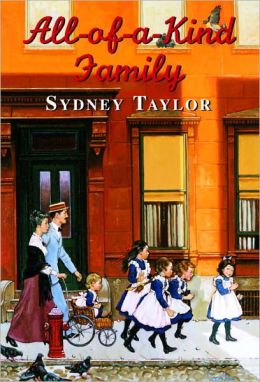



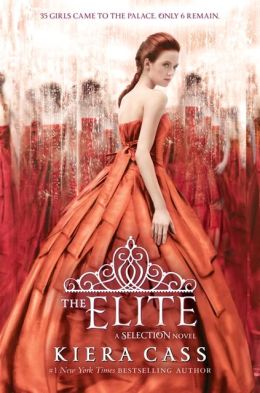
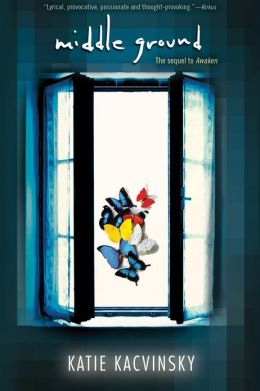
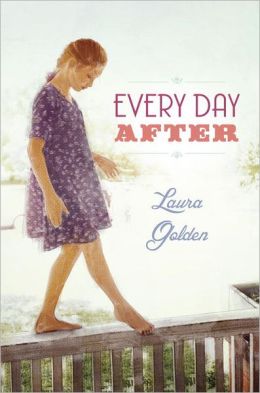

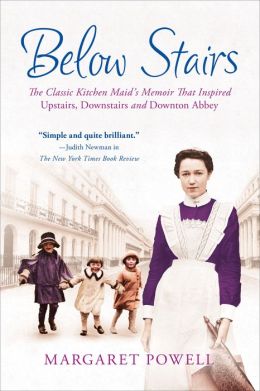
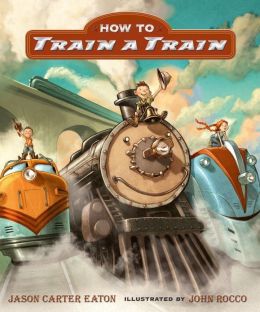



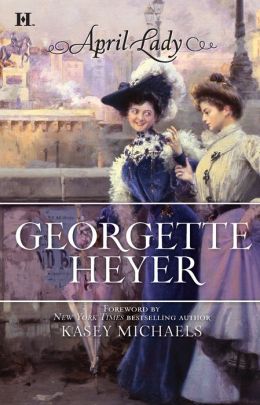


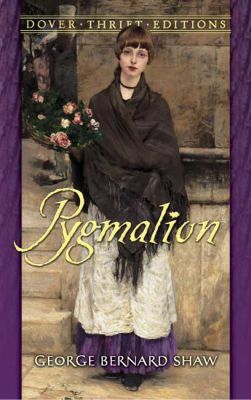

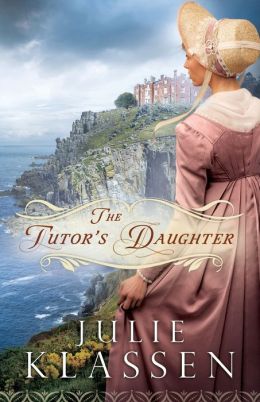

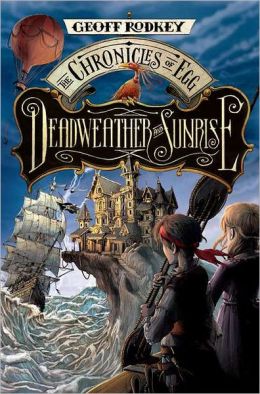
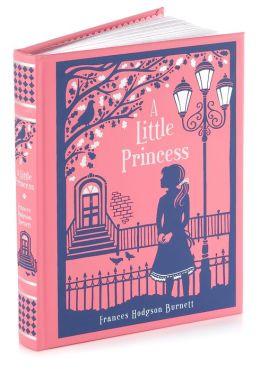
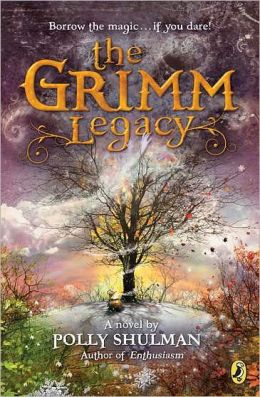


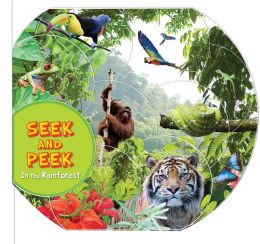
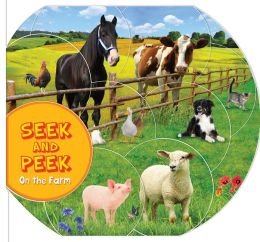
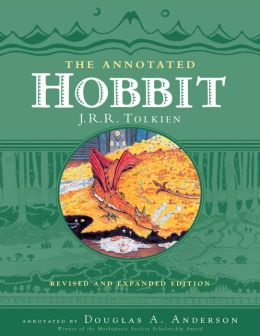
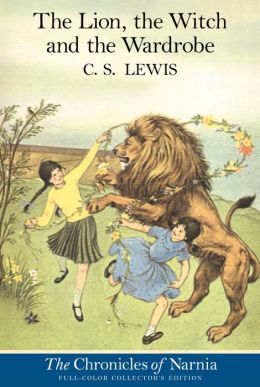
I read this one when I was growing up, and read it to my oldest two daughters. Seeing your review reminds me I need to read it to my youngest...it is a great book.
I definitely need to reread this book. Thanks for your review reminding me.
I remember this series with great affection. I discovered it as an adult when I read it to my kids.